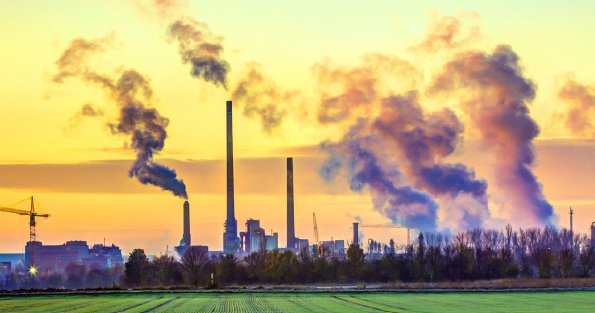

Topic of the month:
German LNG market developments
German LNG market developments
The topic of the month in the last issue was an interview with Benjamin Lakatos, CEO of the Swiss MET Group. In the editorial, I announced the following interview: "Among other topics we discussed, he makes very ambitious and confident statements about the group's growth targets in Germany. For Mr Lakatos, a stake in Sefe is not out of the question. But read all about it for yourself". If you, dear reader, have read the interview, you will have noticed that the company name Sefe is not mentioned. Benjamin did not mention the name in the interview either. He only said: "If the state wants to sell its newly acquired holdings and there is a bidding competition, we are ready". Reducing this to Sefe was solely my interpretation. As my statement has confused market participants, the MET Group feels it is important to clarify. It is also correct.
Now to the current edition. The chapter on framework conditions contains detailed reports on the carbon management strategy, the climate protection agreements and the amendment to the 37th Federal Immission Control Ordinance Provision (BImSchV). These are not really gas issues. However, the possibility of carbon capture and storage (CCS) and the promotion of hydrogen as well as the use of CCS as part of the climate protection agreements are to some extent decisive for the potential of molecular energy sources in a decarbonised energy world and their market development. These are therefore important developments in the framework conditions. The publications made at the beginning of February and the beginning of March represent a starting point. However, implementation will be crucial. It has also been recognised regarding other topics that the difficulties lie at this level of implementation.

Topic of the month: German LNG market developments
In March, there were several developments in the German LNG market that should positively impact further market development.
1.1 Stade
The most important developments have undoubtedly taken place in Stade: The Energos Force FSRU arrived in Stade on 14 March. Under perfect conditions, the vessel can regasify up to five billion cubic metres of natural gas per year. However, it will be a few weeks before the first commercial volumes are fed into the grid. During this commissioning phase, all systems will be tested. Perhaps more importantly, on 21 March, the project company Hanseatic Energy Hub (HEH) announced the final investment decision for the onshore terminal in Stade. This was originally planned for the end of 2023 but has been repeatedly delayed. One of the reasons was that the EU Commission had to approve an amendment to the exemption from regulated access to the terminal. In the original BNetzA decision, the exemption was conditional on the terminal being commissioned by 19 August 2027 at the latest. At the request of HEH, this deadline was extended to 19 August 2029 in a new decision dated 15 February 2024. The decision had to be notified in advance by the EU Commission, was done on 22 January 2024. Unfortunately, key information is blacked out in the decision published by BK 7 in February. For example, it is not clear when exactly HEH expects the plant to be commissioned. However, two things in BK 7’s explanations are quite interesting. The project company gave four reasons for the delay in completion…

Frequently asked questions
What is the energate Gasmarkt?
The energate Gasmarkt provides specialists and executives in the gas industry with up-to-date information and background information on the German and international gas market. The medium expertly explains the most important developments in the fields of market, law, politics and business. In addition, the energate Gasmarkt offers insider information such as market rumors and personal details.
What is the energate Jahresreport Gas?
The energate Jahresreport Gas traces the most important market developments of the year and provides a well-founded outlook for the coming months. Gas expert and insider Dr. Heiko Lohmann analyzes relevant events in politics, law and regulation as well as on generation, infrastructure and trade. In addition, the report provides information on changes in the corporate landscape and tracks price developments in market reports. Top decision-makers from the industry use the Jahresreport Gas as a compact chronicle of the year and to assess future market developments.
How often are these publications released and in which formats are they available?
The energate Gasmarkt is published monthly. Subscribers will receive the energate Gasmarkt as a print and PDF version in German and English. The Jahresreport Gas is published annually (beginning of December).
Can I purchase individual issues of the energate Gasmarkt?
Yes, you can purchase individual isses as print or PDF version. Payment options include purchase on account, credit card or PayPal.
How much is a subscription of the energate Gasmarkt and how much does the Jahresreport cost?
A subscription to the energate Gasmarkt (single licence) costs 110,- Euro/month (plus VAT). An edition of the Jahresreport Gas costs regularly 390,- euro (plus VAT).
Are there any special conditions if several employees in a company would like to receive the Gasmarkt?
With several Gasmarkt recipients in one company, the price of the second and all other licenses is reduced significantly. We are happy to make you a fair offer for team or corporate licenses!
What benefits do I get by registering?
A free energate account is required to order the energate Gasmarkt or the energate Jahresreport Gas. Registered users receive an overview of the contents of the current issue of energate Gasmarkt by e-mail on the day of publication.
I would like to read energate Gasmarkt or energate Jahresreport Gas digitally. Where can I find my e-paper version?
As a subscriber to energate Gasmarkt or as a purchaser of energate Jahresreport Gas, you will also receive an e-paper version in addition to the print edition. You can find it at online.energate-gasmarkt.de. Please use your energate account to log in.

